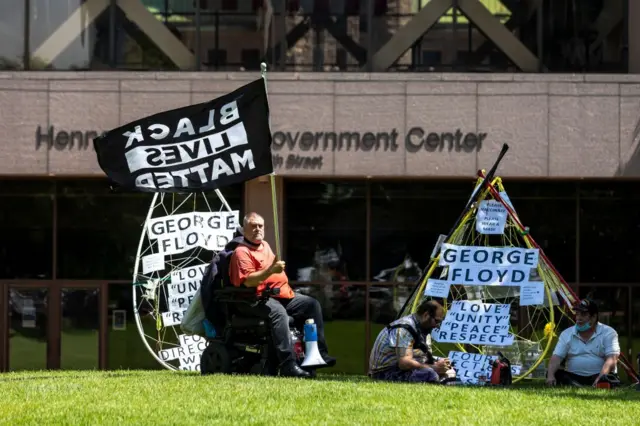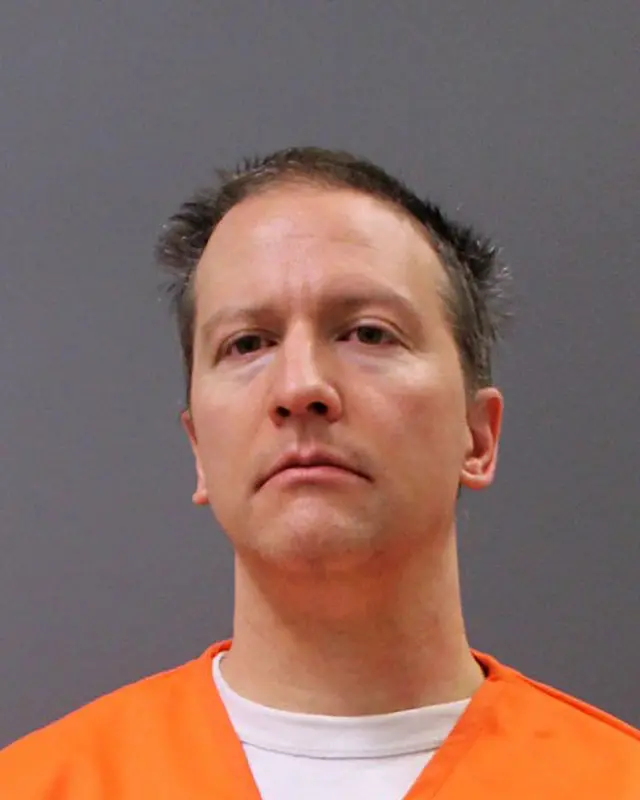25 minutes until it beginspublished at 19:05 BST 25 June 2021
The sentencing of Derek Chauvin is due to begin at 13:30 local time (19:30 BST) and is expected to last at least an hour.
In Minneapolis, people are already gathering outside Hennepin County Government Center. Some protests are planned nearby, but local security preparations have not been as heavy as they were ahead of the trial verdict in April.



